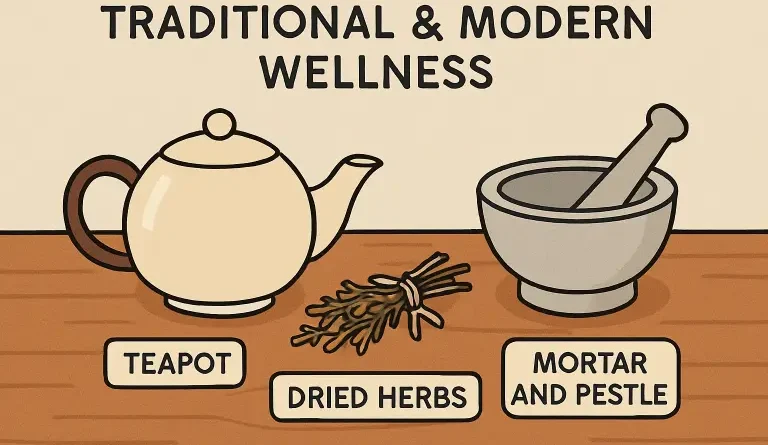Rediscovering Traditional Herbal Wisdom in Modern Wellness
The Rise of Herbal Remedies in Daily Life
Across the globe, herbal remedies have reclaimed a prominent place in daily wellness routines. With the increasing emphasis on sustainable living and the search for gentler health alternatives, herbal formulas are again making waves among consumers. Pursuing remedies with fewer side effects and a renewed respect for ancestral knowledge is reshaping the landscape of holistic self-care. An example of this resurgence is the Two Feathers Herbal Formula, which draws on traditional wisdom while catering to modern health requirements.
People gravitate toward natural healing to complement or sometimes replace conventional pharmaceuticals. An article from The New York Times explores this renewed curiosity for botanicals and plant-derived supplements. As awareness spreads about the potential long-term effects of synthetic medications, more individuals desire remedies that both support well-being and honor tradition.
Historical Roots of Herbal Medicine
Herbal medicine is anything but new. Cultures worldwide have cataloged, experimented with, and perfected herbal practices for thousands of years. Systems like Ayurveda, Traditional Chinese Medicine (TCM), and Indigenous North American healing traditions rely on plant medicine for prevention and healing. Such practices have not only endured but have also evolved and informed the development of many modern pharmaceuticals. Whether using willow bark for pain relief or echinacea for immune support, the footprints of these ancient traditions run deep.
Modern Science Backs Herbal Benefits
Today’s science sheds light on the time-honored claims of herbal medicine. Rigorous research now validates the effectiveness of herbs like turmeric, renowned for its anti-inflammatory compounds, and chamomile, frequently recognized for its calming effects. Recent findings from organizations such as the National Institutes of Health echo the value herbal allies can provide, suggesting that many age-old remedies hold genuine promise when incorporated responsibly. Such studies foster greater trust among those seeking alternatives that blend the best of nature and science.
Current Trends in Holistic Health
Wellness conversations today reach far beyond mere symptom management. The holistic approach emphasizes whole-body care, encompassing mind, spirit, and emotions. A significant trend is the use of adaptogenic herbs such as ashwagandha and reishi, which are praised for supporting resilience against stress. Meanwhile, the value of rituals—like evening herbal teas, botanical baths, or cleansing routines—has contributed to an evolving definition of self-care that is as much about connection as it is about cure.
According to coverage in Healthline, these shifting paradigms champion collaboration between traditional wisdom and modern research, encouraging people to personalize their paths toward physical, emotional, and psychological health.
Incorporating Herbs Into Holistic Self-Care
- Herbal teas: Sipping balms like peppermint for digestion or lemon balm for tranquility can soothe both body and mind.
- Topical balms and salves: Plant-based ointments provide gentle relief for minor aches and skin irritation or for winding down before sleep.
- Dietary supplements: Herbal capsules or tinctures can deliver targeted nutritional support. It’s crucial to seek third-party tested products and consult a health professional before regular use.
Even the smallest ritual—like preparing morning herbal tea or applying lavender oil before bed—connects daily life to the rhythm and wisdom of our ancestors, weaving wellness into the everyday.
Cautions and Considerations With Herbal Use
Embracing herbal remedies requires a discerning approach. Not all natural solutions are universally safe, and certain herbs may interact with prescription medications or underlying health conditions. Regulatory oversight from agencies like the U.S. Food and Drug Administration is less stringent for herbal supplements than pharmaceuticals, leading to variations in quality and efficacy. Consumers should prioritize trusted brands and seek guidance from qualified healthcare professionals for the safest outcomes.
Case Studies: Ancient Wisdom at Work Today
Examples of ancient herbal wisdom in action are everywhere. Ginger root, celebrated for relieving nausea in traditional medicine, is now recommended by many modern healthcare providers for expectant mothers. Likewise, the use of St. John’s wort for mood support—historically common in European herbalism—has inspired contemporary research into natural antidepressant therapies. In many Western countries, doctors and holistic practitioners are integrating evidence-based herbal solutions into routine care, reflecting a spirit of collaboration between age-old wisdom and modern clinical science.
Forward Outlook for Herbal Wellness
The convergence of traditional and contemporary wellness signals a promising future for herbal remedies. Today’s consumers are more informed and demand accountability regarding safety, ingredient sourcing, and evidence of results. The mainstreaming of products demonstrates how ancient wisdom and modern standards coexist, offering people a meaningful pathway to holistic health. As scientific investigation and user experience continue to intersect, the possibilities for herbal wellness remain as diverse and vibrant as the plants themselves.

